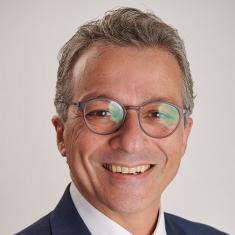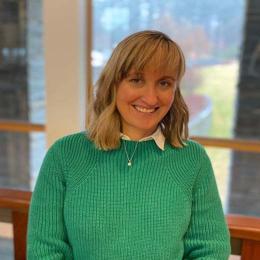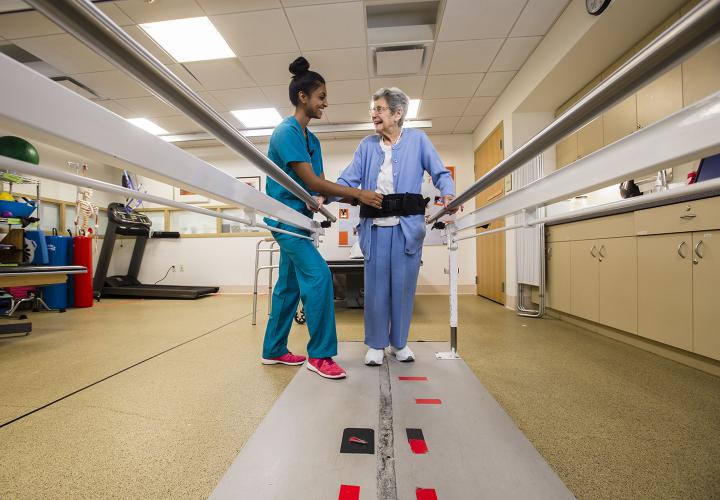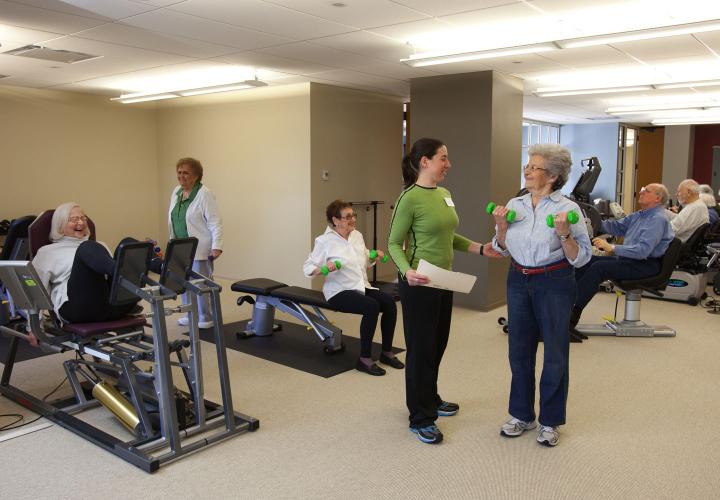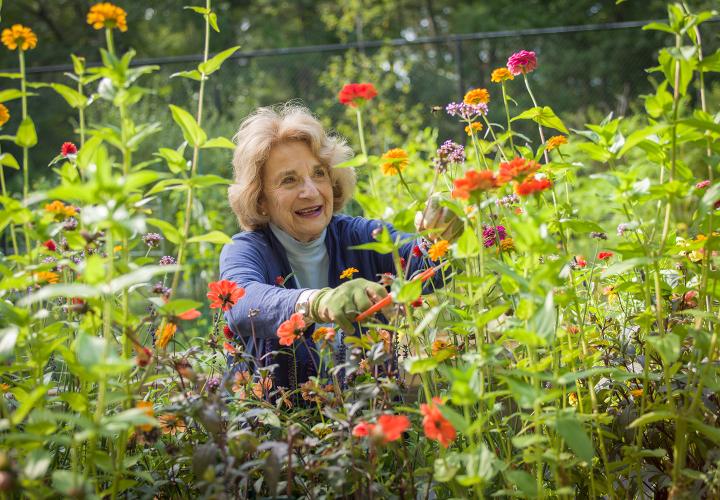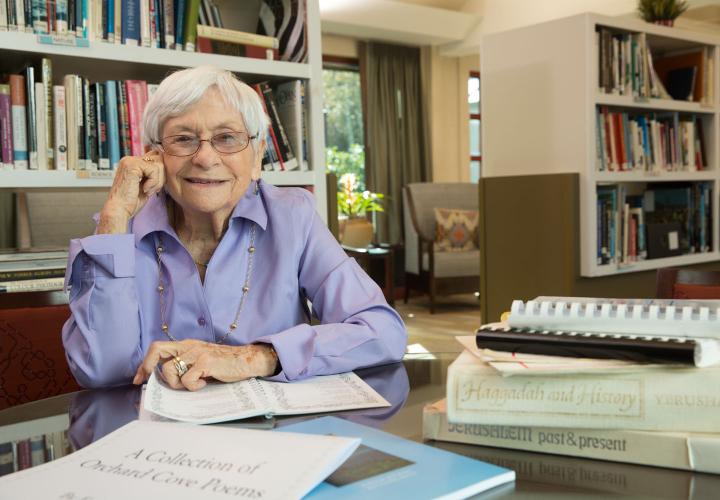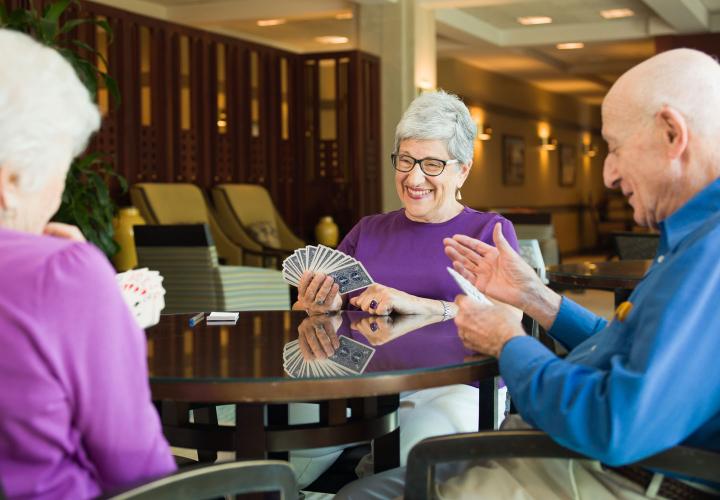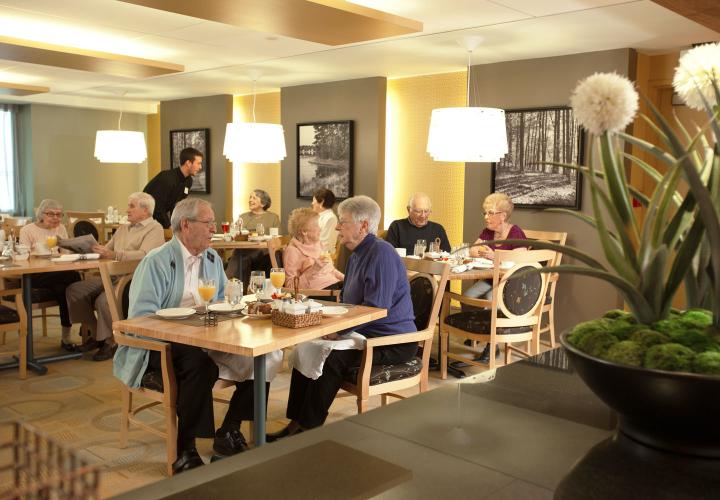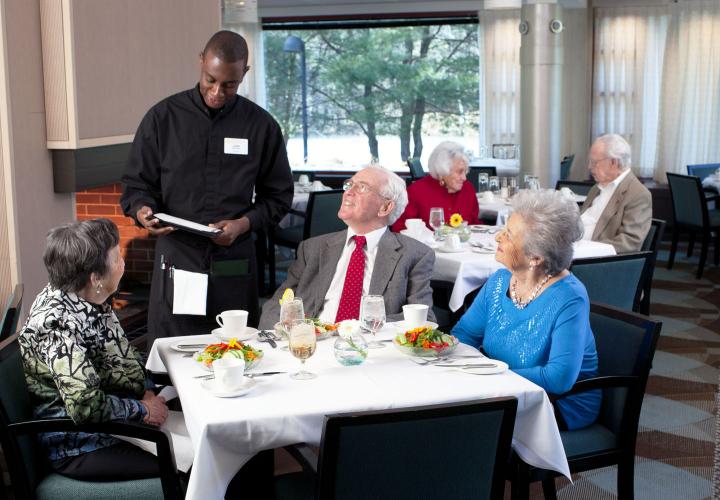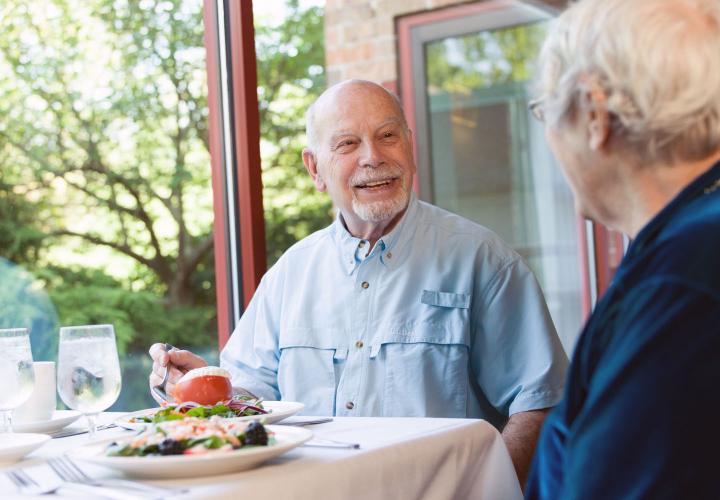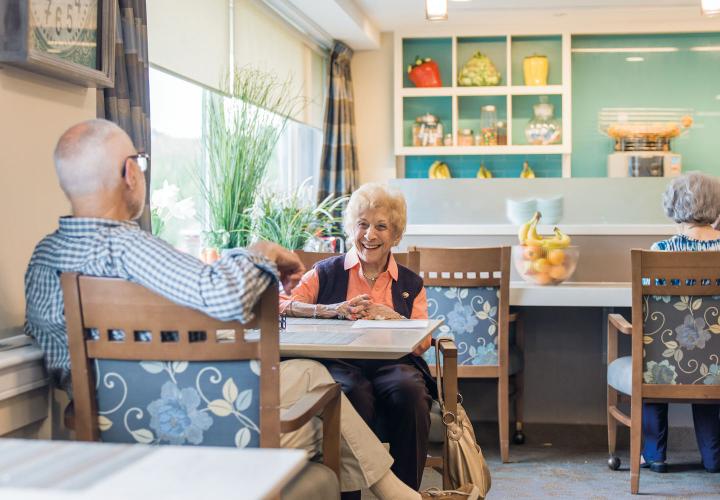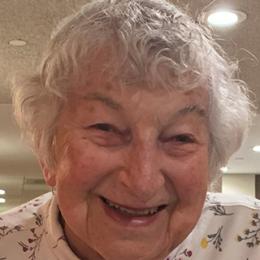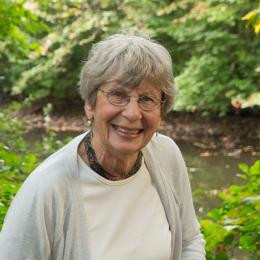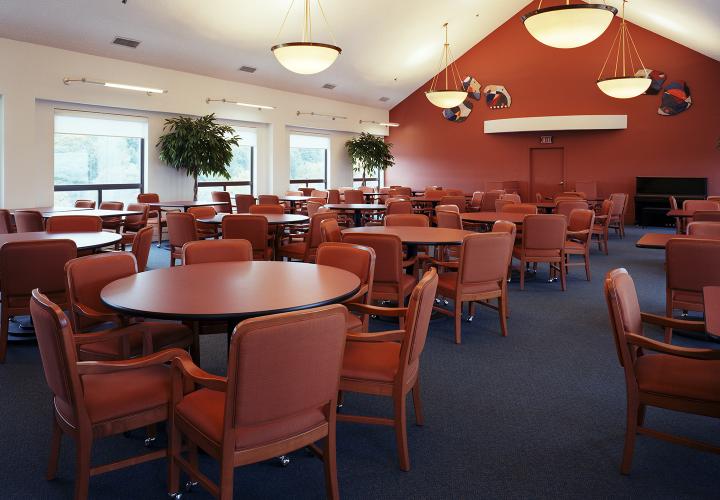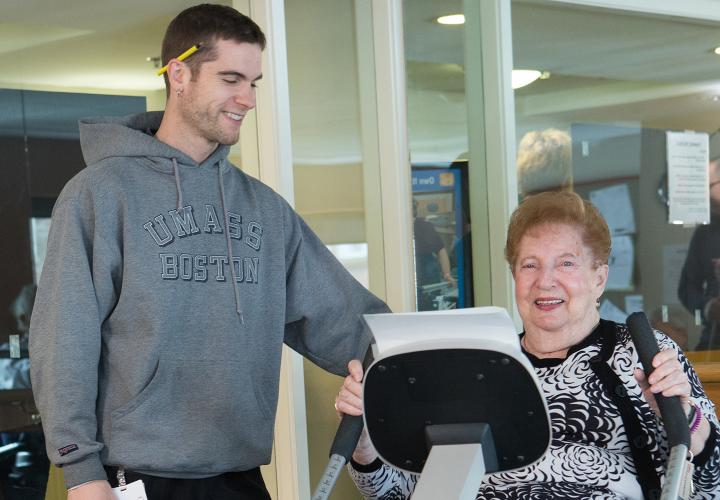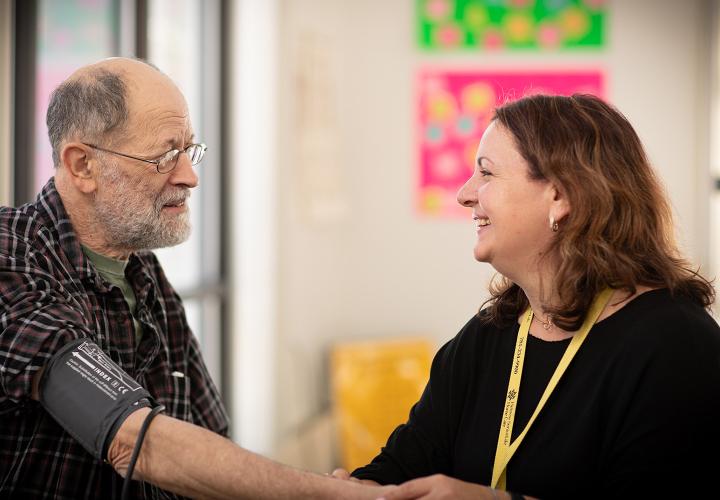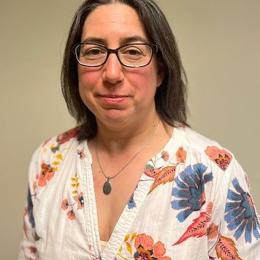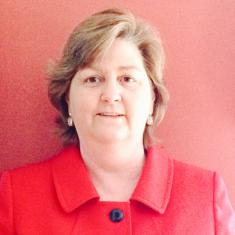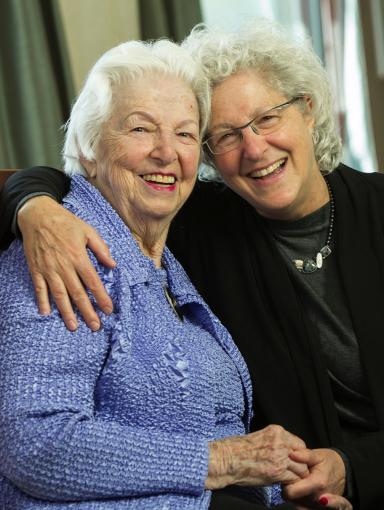Two locations, each with amenities to make you feel at home.
Amenities at Hebrew Rehabilitation Center - Boston
Our flagship campus is Hebrew Rehabilitation Center - Boston, in the city’s Roslindale neighborhood. Abutting the Arnold Arboretum and close to Jamaica Plain, West Roxbury, Brookline, and Chestnut Hill, our site is well-situated for patients, families, and professionals.
Home to the Hinda and Arthur Marcus Institute for Aging Research, our Deanna and Sidney Wolk Center for Memory Health, and many other outpatient services, patients benefit from the resources of a building bustling with innovation and expert care. Our Boston campus is also home to a robust Russian Bilingual Program.
Our Boston campus includes many multipurpose spaces where patients can engage in social activities and organized programs. These also offer areas for families to gather. The Cable Synagogue provides a large sanctuary for both Jewish and interfaith worship. Outdoor courtyards and a secure patio allow easy access to green space.
Our executive chefs and culinary team prepare delicious food that complies with each individual’s dietary requirements and restrictions. In addition to common dining areas on each floor, our newly renovated cafeteria is available as a place families can visit together and enjoy a meal with their loved one. All food at Hebrew Rehabilitation Center in Boston is certified kosher.
Our patient gym offers supervised exercise on specialized equipment designed for geriatric fitness. We also offer seated muscle strengthening equipment on each floor, with supervision by trained staff.
Our Boston campus is filled with curated art from the Hebrew SeniorLife art collection, including original work by artists from around the world as well pieces created by patients.
The Claire and Grover B. Daniels Art Gallery offers rotating exhibitions from local artists. It is open to the general public Monday - Friday from 7:00 a.m. - 8:00 p.m. and Saturday and Sunday from 10:00 a.m. - 8:00 p.m.
For updates about Daniels Gallery exhibitions, be sure to follow us on Instagram at @H_seniorlife. For more information or to be added to our gallery mailing list, contact Jill Perkins at 617-971-5786 or JillPerkins@hsl.harvard.edu.
Our on-campus beauty salon offers hairdressing and barber services as well as nail treatments.
Located on the third floor near our upper entrance, we offer a volunteer-run gift shop offering snacks, greeting cards, and gifts.
Patients and their families enjoy 24/7 security, complimentary Wi-Fi, and valet parking for guests.
Amenities at Hebrew Rehabilitation Center - NewBridge
Hebrew Rehabilitation Center is situated on the NewBridge on the Charles campus in Dedham, which offers a full continuum of senior living options including independent living and assisted living. Patients of Hebrew Rehabilitation Center - NewBridge enjoy proximity to the broader community and senior living residents have peace of mind knowing that post-acute and long-term chronic care are available just steps away.
NewBridge on the Charles shares its campus with the Rashi School, an independent school of over 500 students ranging from Kindergarten to eighth grade. When visiting Hebrew Rehabilitation Center at NewBridge, you’ll see that intergenerational interactions with children and students of all ages are part of the daily fabric of life.
The NewBridge campus includes a 100-acre nature preserve along the Charles River. Paved, flat walking paths surround the campus for easy access to the outdoors.
Our Hebrew Rehabilitation Center - NewBridge campus offers spacious multipurpose spaces where patients can engage in social activities and organized programs. There are plentiful comfortable seating areas for families to gather. Our conservatory serves as a synagogue space and the Beal Family interfaith chapel offers another option for small group prayer or meditation. Outdoor patios, enclosed porches, and secure courtyards allow easy access to green space.
Oversized family kitchens create a homelike environment at the center of each household, where our executive chefs and culinary team prepare delicious food cooked to order, complying with each individual’s dietary requirements, preferences, and restrictions. Kosher meals are available by request.
For a change of pace, patients and families may dine at the Nosh eatery in the Shapiro Community Center. Coming in Spring 2024, the Shulman Café will be located on the ground floor of the Health Care Center as a dining alternative after-hours. Open 24 hours a day, five days a week, this self-serve café will have grab-and-go beverages and snacks, breakfast and lunch options, and grocery items for purchase.
Our patient gym offers supervised exercise on specialized equipment designed for geriatric fitness. We also offer seated muscle strengthening equipment within each household, with supervision by trained staff.
Art in all its forms is integral to the unique campus environment of NewBridge, bringing color and creative expression throughout our community. Beginning with our outdoor sculptures and moving inside, you’ll discover many of the 1,000 pieces of original art on campus that our patients and visitors enjoy every day.
Our on-campus beauty salon offers hairdressing and barber services as well as nail treatments.
Patients and their families enjoy 24/7 security, complimentary Wi-Fi, and ample parking for guests. A guest house offers hotel-like accommodations for out-of-town visitors.
